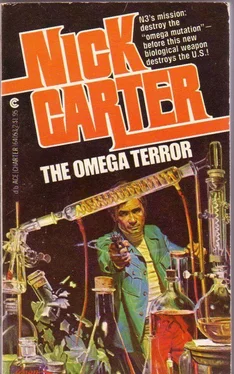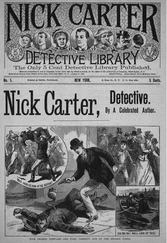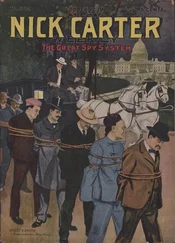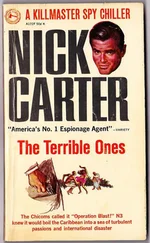“Now go back to town,” I told her. “I’m going to wait here for the barber. I hope to get into the laboratory by late morning. If you don’t hear from me by tomorrow noon, return to Tangier as we planned.”
“Maybe you should not go in there alone,” she said.
“It’s a one-man job,” I said. “Don’t worry. Just do as we’ve agreed.”
“All right,” she said reluctantly.
“Good. Now get going. See you in Mhamid.”
She responded weakly to my grin. “In Mhamid.”
Then she was gone.
I sat for over an hour beside the road, and no traffic came by from either direction. The sun was hot, and the sand burned my thighs through my pants as I waited. I was sitting under a clump of palms, a small oasis in the barren, rocky terrain. In the distance was a line of low hills, mostly sand, and beyond them were the homes of the Blue Men, the nomadic tribes of Ait Oussa, Mribet, and Ida ou Blal. It was wild, desolate country, and I could not help wondering why anyone would want to live in it. I was just marveling at Li Yuen’s decision to set up the lab there when I heard the choking, sputtering engine of an automobile coming along the road from Mhamid.
In a moment the van came into view. It was a rusty relic of uncertain make, and it seemed to despise the desert as much as the grumbling barber who was driving it.
I stepped out onto the road and stopped the decrepit van. It halted in a whoosh of steam and foul odor, and the barber angrily stuck his head out the window. He did not recognize me,
“Get out of the way!” he shouted.
As I moved around to his door, I saw the weathered lettering on the side of the van, in Ara-bic: HAMMADI. And underneath: HAIR CUTTER.
“What is this you do?” he shouted belligerently. Then he squinted at my face. “I see you sometime before, I think.”
“Get out of the van, Hammadi,” I said.
“Why? I have business.”
“You have business with me.” I opened the door and pulled him from the vehicle.
He looked at me, fear in his eyes. “Are you a bandit?”
“Of a sort,” I answered. “Go over behind the trees and take off your clothes.”
“I will not!”
I pulled out Wilhelmina to impress him. “You will.”
He scowled at the gun,
“Move,” I said.
He reluctantly followed orders, and in a few minutes he was sitting on the ground in his underwear, bound and gagged with what I had at hand. He watched with fascination as I donned his dirty, smelly clothes and his red fez. I tried not to think about the odor. When I was dressed, I threw my shirt and jacket beside him.
“These are yours,” I said. “And believe me, you’re getting the best of the trade.” I applied some light stain to my face and my hands, and I was ready. I reached into a pocket in the djellaba and found a pass made out to Hammadi. I stuck it back into the robe, climbed into the van and drove off.
When I arrived at the gate, two guards on duty had been joined by a soldier with a dog. They all looked mean. One of the guards remained talking with the soldier while the other guard came to the van.
“Good morning,” I said to him in my best Arabic. “It is a fine day.” I handed him the pass.
He took it but did not look at it. Instead he narrowed his eyes. “You are not the regular bar-ber.”
“That is true,” I told him. “Hammadi was taken ill this morning. I am also a hair-cutter and was sent in his place. He said I would be admitted with his pass.”
The soldier looked at the pass, grunted and handed it back to me. “What illness are you talking about?”
I gave him a grin and leaned down toward him. “I suspect it is just a matter of too much k’fta and wine last evening.”
He hesitated a moment, then returned the grin. “All right. You may go in.”
The tightness inside my chest loosened a little. I put the old van into gear and moved slowly through the gate. I nodded at the men and moved the van into the compound. I was finally inside the Mhamid facility. It was an unsettling thought.
I wheeled the old van to a parking area near the front entrance of the building complex. A hundred things I didn’t know could cause suspicion at any moment. I wondered if the van should be parked out in front or if Hammadi was expected to enter the lab through some other entrance. There was no way of finding out these details, so I had to proceed on bluff, which was not exactly a new experience.
I didn’t even know what equipment the barber took into the building. When the van was parked, I climbed out, opened the rear doors and saw a sizable carrying case inside. It contained barber’s tools.
There were several people in sight. Two uniformed soldiers stood smoking cigarettes and talking together at the corner of the building, and a white-frocked technician moved quickly past me with a clipboard under his arm.
The front entrance stood wide open, but there was a guard just inside the door, sitting at a small table. He was a black African dressed in plain khaki pants and a shirt open at the neck. He wore black horn-rimmed glasses, and he had a precise, professorial air about him.
“Pass, please,” he said in perfect Arabic.
I handed the card to him. “I am cutting hair for Hammadi today,” I told him in an offhand manner.
He took the pass and stared at me. I wondered if he thought I did not look like an Arab. “He has been told, I’m sure, that passes to this facility are not transferable to other individuals.” He glanced at the pass as if he had seen it many times previously. “But you may have clearance this time. Next week, have Hammadi report directly to me before he goes to the cutting room.”
“Yes, sir.”
He handed the pass back to me. “And you had better be good, brother. The standards here are high.”
“Yes, of course,” I said.
He pointed to his clipboard. “Sign on the first empty space.”
My written Arabic was lousy. I signed Abdul Marbrouk and handed the clipboard back. He nodded for me to proceed into the building.
I thanked him and moved on down the corridor. The place was brightly lit inside, with no windows. The walls were painted a dazzling white.
I passed through double doors in the corridor into another section of the building. I had no idea where the “cutting room” was and cared less. But I could not let anybody catch me going in the wrong direction. There was an occasional white-coated staff member in the corridor, but there people hur-ried past me without a second glance. Some of the doors had glass windows in them, and I saw employees inside the offices doing administrative work. In one room there was a console computer, and several technicians moved about near it. That expensive piece of machinery would be there to help Zeno check his calculations.
I walked through another set of doors and found myself in the main section of the building complex. A sign above the doors stated, in three languages, Authorized Personnel Only . This wing would undoubtedly be where Zeno’s and Li Yuen’s offices were located and possibly the lab where Zeno conducted his experiments.
I had just passed a door marked Service when a white-coated man with a yellow badge on his chest came hurrying out of a room and almost knocked me down. He was a tall fellow, about my height, but with narrow shoulders. His long face showed mild surprise when he saw me.
“Who are you?” he asked in Arabic. He looked German or possibly French. I wondered whether he was one of the many on this project who, like André Delacroix, knew nothing of its real purpose.
“I am the hair-cutter,” I said to him. “I am…”
“What do you think you are doing in Section One?” he said irritably, interrupting me. “You must be aware that you do not belong here.”
Читать дальше












